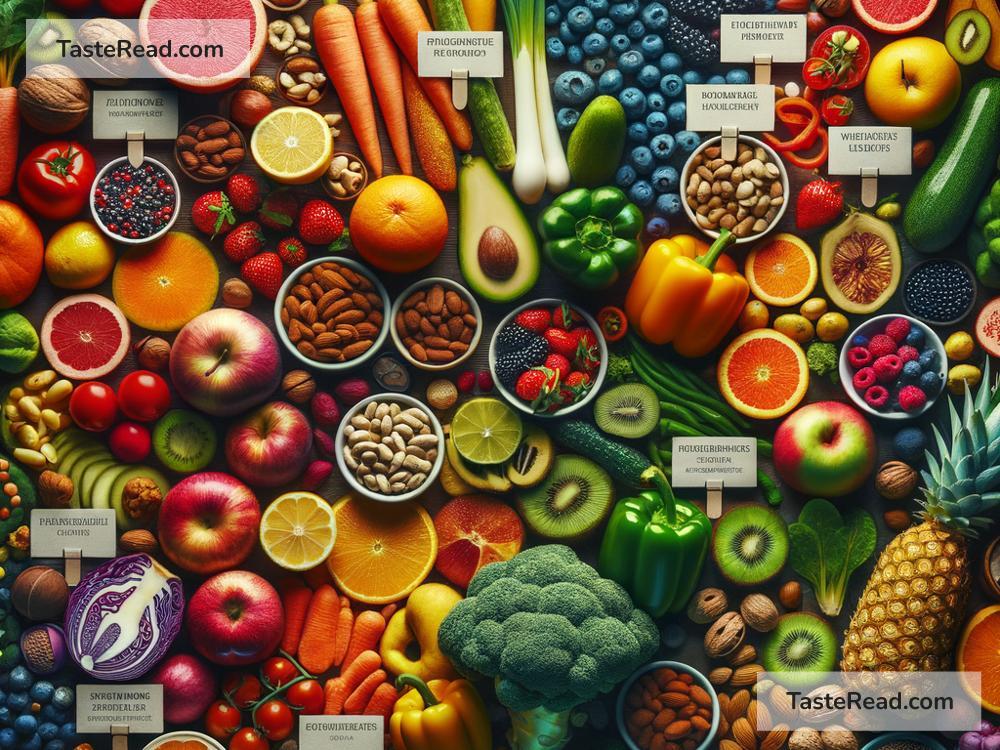The Role of Micronutrients in Health: Why Small Nutrients Matter
Did you know that your body needs more than just calories from food to stay healthy? We often hear about macronutrients like carbohydrates, proteins, and fats—they provide energy and are very important for our survival. But there’s another type of nutrient that’s equally crucial, even if your body needs them in tiny amounts: micronutrients. Despite their small size, they play a big role in keeping us healthy. In this blog, we’ll talk about what micronutrients are, their importance for health, and where you can find them.
What Are Micronutrients?
Micronutrients are vitamins and minerals that our bodies need in small quantities to work properly. Unlike macronutrients, which provide energy, micronutrients help keep everything in your body functioning smoothly. They support processes like growth, the production of energy in cells, a strong immune system, and even brain health. Without enough of them, your body can’t perform these key functions.
There are two main types of micronutrients:
- Vitamins: These are organic compounds made by plants and animals. Your body needs them to stay healthy, but it can’t produce most vitamins on its own, so you have to get them from food.
Examples include vitamin A (important for vision), vitamin C (supports immunity), and vitamin D (helps your bones).
- Minerals: These are inorganic substances found in soil, water, and food. Like vitamins, they help the body perform different functions.
Examples include iron (needed for healthy blood), calcium (for strong bones), and potassium (important for muscles and nerves).
Why Micronutrients Matter
Even though we only need small amounts of micronutrients, they play major roles in our health. Here are some ways they help:
-
Boosting Immunity:
Micronutrients like vitamin C, vitamin D, and zinc help your immune system fight off infections and keep you from getting sick. For example, vitamin C increases the production of white blood cells that fight germs, while zinc helps these cells work better. -
Supporting Growth and Development:
Micronutrients are especially important for children, pregnant women, and teens because they support growth. For example, calcium helps build strong bones and teeth, while folic acid (a type of vitamin B) is essential for a healthy pregnancy. Without enough micronutrients, normal development can be disrupted. -
Building Energy:
Your body needs certain micronutrients to convert the food you eat into energy. B vitamins, such as B6, B12, and folate, play essential roles in this process. Imagine trying to turn on a light bulb without electricity—this is what happens when your body doesn’t have enough of these nutrients. -
Keeping Your Heart and Brain Healthy:
Minerals like potassium and magnesium help regulate blood pressure, which lowers the risk of heart disease. Other nutrients like omega-3 fatty acids and vitamin E protect the brain, improving memory and reducing the risk of cognitive decline as we age. -
Preventing Diseases:
Micronutrient deficiencies can increase your risk of serious health problems. For example, a lack of iron can lead to anemia (a condition where your blood doesn’t carry enough oxygen), while not getting enough vitamin D can cause rickets (weak bones) in children or osteoporosis in adults.
Where to Find Micronutrients
The good news is that most of the micronutrients your body needs can be found in common foods. Here are some examples of nutrient-rich foods:
-
Fruits and Vegetables:
These are packed with vitamins and minerals and should be a big part of your diet. Citrus fruits like oranges are high in vitamin C, while leafy greens like spinach and kale are good sources of iron and calcium. -
Dairy Products:
Milk, yogurt, and cheese are excellent sources of calcium and vitamin D, which are important for healthy bones and teeth. -
Whole Grains:
Brown rice, quinoa, and whole wheat bread contain B vitamins and essential minerals like magnesium. -
Protein-Rich Foods:
Meat, fish, eggs, and beans are great sources of vitamins like B12, zinc, and iron. Fatty fish like salmon is also rich in omega-3 fatty acids. -
Nuts and Seeds:
Almonds, sunflower seeds, and walnuts are full of healthy fats, vitamin E, and other essential nutrients.
Getting the Right Amount
While eating a variety of nutritious foods will usually give you the micronutrients you need, some people may require extra help. For example, pregnant women might need folic acid supplements, and people who don’t get much sunlight may benefit from vitamin D supplements. Talk to your doctor before taking any supplements, as too much of certain nutrients can be unhealthy.
The Bottom Line
Micronutrients may be small, but they’re mighty! They play a huge role in keeping your body healthy, strong, and functioning at its best. From supporting your immune system to strengthening bones and boosting energy, these tiny nutrients are essential to your overall well-being.
The easiest way to get enough micronutrients is to eat a balanced diet full of fruits and vegetables, whole grains, protein sources, and healthy fats. By giving your body the vitamins and minerals it needs, you’re investing in a healthier, happier future.
So next time you think about nutrition, remember: sometimes, the small things make the biggest difference!


